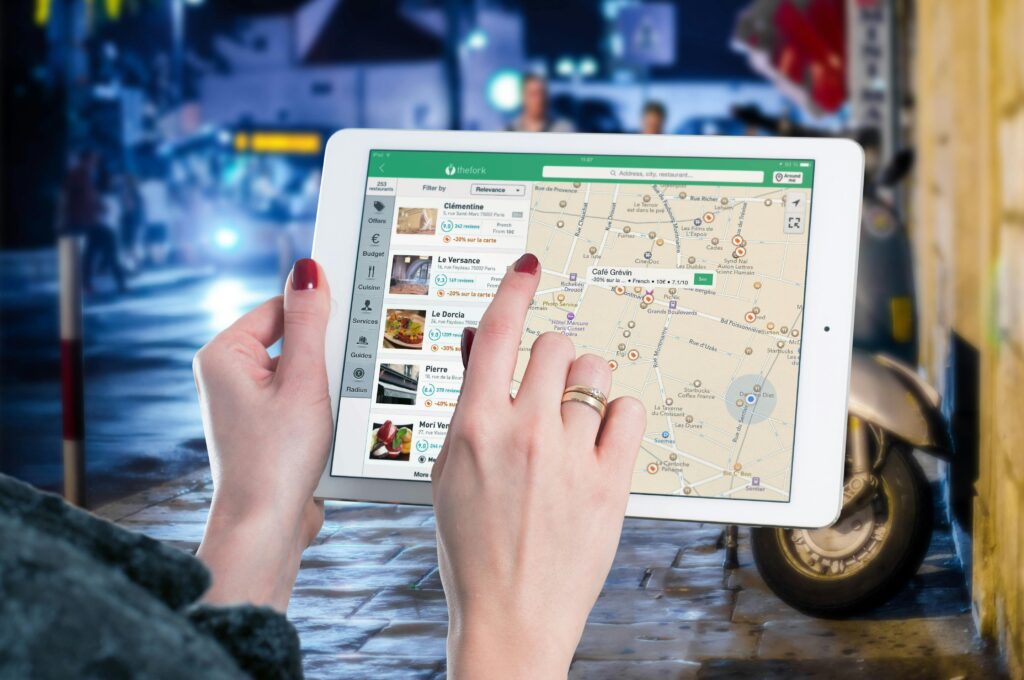Local SEO has become a powerful strategy for businesses looking to attract customers in their area. For marketing agencies, mastering Local SEO tactics is essential to help clients achieve high visibility in local search results. This guide will walk you through effective Local SEO techniques that every SEO agency can use to boost their clients’ online presence in their local markets.
Whether you are working with small businesses or large brands with local outlets, these strategies are fundamental for driving local search traffic and ensuring your clients are seen by their target audience. Let us get started!
What is Local SEO and Why is it Important?

Local SEO is the process of optimizing a website or online presence to appear in local search results, such as “restaurants near me” or “plumbers in [city name].” It helps businesses attract nearby customers who are ready to engage, buy, or use a service. With mobile usage on the rise, local searches have skyrocketed, making it essential for businesses to be visible to customers who search for products and services nearby.
For marketing agencies, knowing Local SEO tactics is crucial because it helps clients compete in their local markets, reach customers who are actively looking for their services, and increase their overall online visibility.
1. Claim and Optimize Google My Business Profile
One of the first steps in Local SEO is claiming and optimizing a Google My Business (GMB) profile. Google My Business listings help businesses appear in Google Maps and local search results.
How to Claim and Optimize Google My Business
- Claim or Create Your GMB Profile: Start by claiming your client’s business on GMB if it is not already. Be sure to verify ownership for full access to features.
- Provide Accurate Business Information: Add correct contact details, address, and business category. Consistency is key, so make sure these details match what is listed on your website and other online directories.
- Add High-Quality Photos: Photos can help attract more views, so add images of the business location, products, and team members to make the listing more engaging.
- Enable Customer Reviews: Encourage satisfied customers to leave positive reviews. A high rating and good reviews help build trust and improve visibility in local search results.

2. Use Local Keywords in Your Content
Using local keywords is an effective way to improve Local SEO. Local keywords are search terms that include specific geographic locations, like “digital marketing in Miami.” Incorporate these keywords into website content to help your client rank for searches made by potential customers in that location.
Tips for Adding Local Keywords
- Identify Relevant Local Keywords: Use tools like Google Keyword Planner or Ahrefs to find keywords relevant to the client’s location and services.
- Place Keywords in Key Areas: Insert local keywords in titles, meta descriptions, headers, and throughout the content naturally.
- Do Not Overstuff Keywords: Aim for a balanced approach. Overloading keywords can be penalized by search engines and makes content less readable.
3. Build and Manage Local Citations
Local citations are mentions of your client’s business name, address, and phone number on other websites and online directories. Examples include Yelp, Yellow Pages, and Foursquare. Building local citations helps improve search engine rankings and ensures the business is visible across trusted sources.
How to Build Citations Effectively
- List on High-Authority Directories: Focus on getting listed in reputable directories relevant to the industry and location.
- Ensure NAP Consistency: NAP (Name, Address, Phone Number) should be consistent across all directories. Any discrepancies can confuse search engines and hurt rankings.
- Update Listings Regularly: Keep the information up-to-date, especially if there are changes in address, phone number, or business hours.
4. Gather Customer Reviews and Manage Reputation
Positive customer reviews are essential for building credibility and ranking higher in local search results. Reviews give potential customers insight into the quality of a business and its services. Google favors businesses with good reviews, making it a key factor in Local SEO success.
How to Gather and Manage Reviews
- Ask for Reviews: Encourage customers to leave reviews, particularly on Google. Some businesses find success by requesting reviews at the end of a transaction or via follow-up emails.
- Respond to All Reviews: Thank customers for positive feedback and address any negative comments politely and professionally.
- Use a Review Management Tool: Some tools make it easier to monitor and respond to reviews across multiple platforms, ensuring no comment goes unnoticed.
5. Create Locally Relevant Content
Producing content that appeals to the local community can significantly boost Local SEO. This can be achieved by writing about local events, industry news, or topics specific to the area. When local content is informative and valuable, it draws more visitors from the area and signals to search engines that the business is relevant to that location.
Ideas for Local Content

- Write Blog Posts on Local Topics: Create blog posts that talk about local events, news, or stories relevant to the client’s audience.
- Share Customer Success Stories: Case studies or testimonials from local clients can show new customers how the business benefits people in their community.
- Develop Location-Specific Landing Pages: If the client has multiple locations, create separate landing pages optimized for each city or town.
6. Optimize for Mobile Users
With the increasing use of mobile devices, optimizing for mobile is more important than ever. Google prioritizes mobile-friendly sites, so make sure your client’s website is easy to navigate and loads quickly on phones and tablets.
Steps to Improve Mobile Friendliness
- Implement Responsive Design: Ensure the website adjusts to different screen sizes smoothly.
- Optimize Page Load Speed: Reduce file sizes for images, minimize redirects, and enable browser caching to improve loading times.
- Use Large, Tappable Buttons: Make sure buttons and links are easy to tap on smaller screens to enhance user experience.
7. Use Structured Data Markup
Structured data markup helps search engines understand the content on a website better and display rich snippets in search results, which can improve click-through rates. For Local SEO, using structured data markup specific to local businesses, such as Schema.org’s “LocalBusiness” markup, is beneficial.
How to Implement Structured Data Markup for Local SEO
- Identify Relevant Schema Types: Common types for Local SEO include “LocalBusiness,” “Product,” and “Review.”
- Add Markup to Key Pages: Use markup to identify business name, address, phone number, hours of operation, and services offered.
- Use Google’s Structured Data Testing Tool: This tool helps ensure the markup is added correctly and checks for any errors.
8. Leverage Social Media for Local Engagement
Social media platforms like Facebook, Instagram, and Twitter can help drive local engagement and increase brand awareness in the community. Engaging with the local community on social media can drive traffic to your client’s website and increase its visibility in local searches.
Tips for Social Media Success
- Create Location-Based Content: Post about local events, partnerships, or promotions that appeal to the local audience.
- Use Local Hashtags: Adding local hashtags can make posts more discoverable to people in the area.
- Engage with Followers: Reply to comments and messages, and engage with local customers to build strong community relationships.
9. Conduct Local SEO Audits Regularly
Regular audits help identify any weaknesses in a client’s Local SEO strategy and improve overall performance. This process involves checking keyword usage, analyzing competitors, and identifying gaps in local citations and backlinks.

Steps for a Successful Local SEO Audit
- Review GMB Performance: Analyze the Google My Business listing for accuracy, reviews, and engagement.
- Analyze Local Keywords: Assess how local keywords are performing and make adjustments as needed.
- Check for Consistency Across Citations: Verify that all citations are accurate and up-to-date.
10. Build Local Backlinks
Backlinks from other local websites and organizations can improve authority and rankings in local search results. Local backlinks are especially valuable because they show search engines that other relevant businesses recognize your client’s services.
Ways to Build Backlinks for Local SEO
- Connect with Local Businesses: Collaborate with other local businesses to share content or co-host events, which can lead to backlinks.
- Contribute to Local Blogs or Magazines: Writing guest posts or providing content to local publications can generate backlinks.
- Sponsor Local Events: Many event organizers list sponsors on their websites, providing an opportunity to earn backlinks.
Conclusion: Mastering Local SEO
Mastering Local SEO tactics is essential for marketing agencies that want to help their clients attract more customers from their surrounding area. By following these steps, agencies can effectively boost their clients’ local search visibility, improve their online reputation, and build strong connections within the community. With a strategic approach to Local SEO, agencies can give their clients the advantage they need to succeed in local markets.







